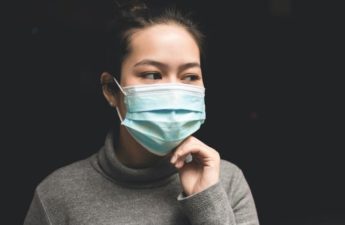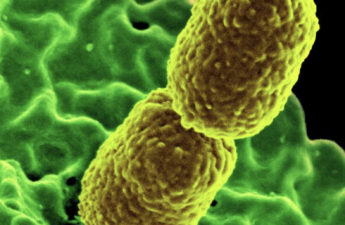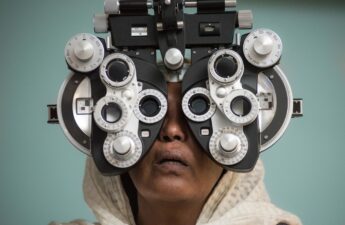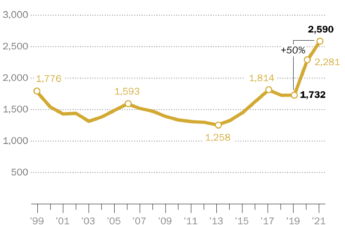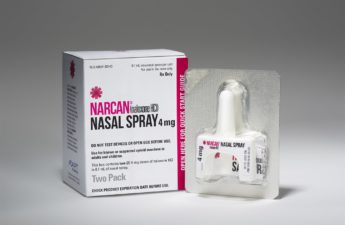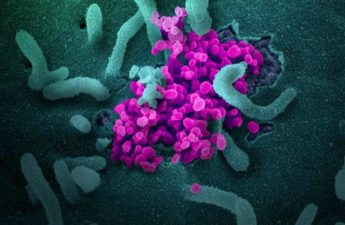Category: Public Health
Study Reveals Staggering Toll of Being Black in America: 1.6M Excess Deaths Over 22 Years
Because so many Black people die young — with many years of life ahead of them — their higher mortality rate from 1999 to 2020 resulted in a cumulative loss of more than 80 million years of life compared with the white population, the study showed.
The Federal COVID-19 public health emergency declaration ends May 11. What does that mean for you?
This Thursday, the Federal Public Health Emergency Declaration will end, which means there will be changes to how some people receive COVID-19-related care, like testing, treatment, and vaccines.
Q & A on recent Klebsiella outbreak at Virginia Mason Franciscan Health Medical Center
As of April 28th, 31 people who were treated at the hospital have have fallen ill with the bacteria and 7 have died.
Washington state COVID-19 exposure app to end May 11
As the Public Health Emergency ends, high levels of vaccination, combined with widespread population immunity and available treatments, have significantly reduced the risk of severe illness, hospitalization, or death from COVID-19
Free Dental, Vision and Medical Care Offered for People in Need
Seattle/King County Clinic returns for an eighth year to Seattle Center, April 27 – 30, with free dental, medical, and eye care services for those who struggle to access or afford healthcare.
Gun Deaths Drive Historic Spike in Child Mortality Rates
After decades of steady improvement, the death rate of America’s children and teens shot up between 2019 and 2021 — and COVID-19 wasn’t the reason.
After Nashville Shooting, Democratic States Push for New Gun Restrictions
In Washington state, Democrats are expecting to enact legislation that would ban semi-automatic rifles, add a 10-day waiting period for gun purchases and allow gun manufacturers and sellers to be liable for negligent sales.
Public Health — Seattle & King County describes its efforts to reduce overdoses
If you are a King County resident, order online to have free naloxone mailed to any address. It arrives in plain packaging to protect your privacy.
Most Americans Say They or a Family Member Has Experienced Gun Violence
Nearly 1 in 5 respondents , including 34% of Black adults, 18% of Hispanic adults, and 17% of white adults, said a family member had been killed by a gun.
Why Finland is the happiest country in the world – an expert explains
Finland comes out top, followed by Denmark and Iceland. Just why Finns are happier than others comes down to a number of factors including lower income inequality (most importantly, the difference between the highest paid and the lowest paid), high social support, freedom to make decisions, and low levels of corruption.
COVID origins debate: what to make of new findings linking the virus to raccoon dogs
While this latest data is one additional piece of the puzzle that supports an origin of the pandemic linked to Wuhan’s animal trade, it is unlikely to provide irrefutable evidence.
Being ‘Socially Frail’ Comes With Health Risks for Older Adults
Social frailty is a corollary to physical frailty, a set of vulnerabilities (including weakness, exhaustion, unintentional weight loss, slowness, and low physical activity) shown to increase the risk of falls, disability, hospitalization, poor surgical outcomes, admission to a nursing home, and earlier death in older adults.Essentially, people who are physically frail have less physiological strength and a reduced biological ability to bounce back from illness or injury.
Frozen Organic Strawberries and a Tropical Fruit Blend Recalled Because of Hepatitis A Risk
Several brands of frozen organic strawberries and one tropical fruit blend are being recalled following a hepatitis A outbreak that’s sickened at least five Washington residents.
Despite the incredible success of the COVID vaccines, and other public health efforts to bring outbreaks largely under control, the pandemic isn’t yet past tense. We are, however, moving out of the emergency response phase.
HOW TO KEEP MEDICAID APPLE HEALTH INSURANCE AS POLICIES CHANGE
Thousands of people who have health insurance through Medicaid (also known as Apple Health, in Washington) risk losing coverage in coming months. The good news: There are options for people to keep health insurance coverage – if they act in time.

